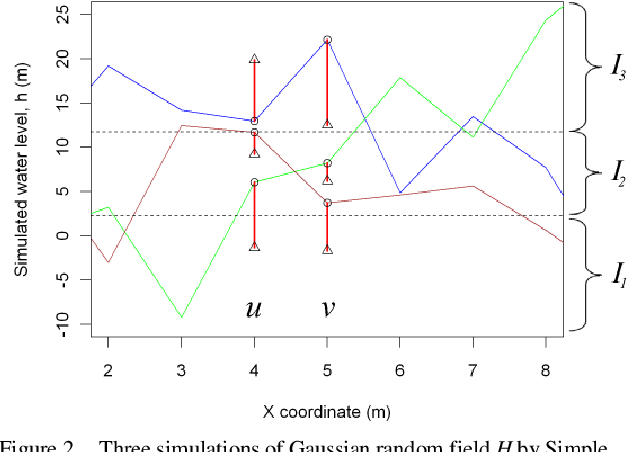
J Electric Eng Technol 15(2):527–538Ĭai D, Shi D, Chen J (2014) Probabilistic load flow computation using Copula and Latin hypercube sampling. Su H, Dong X, Yu X (2020) Probabilistic load flow analysis based on sparse polynomial chaotic expansion. IET Gener Trans Distrib 11(4):3548–3556Ĭorbetta A, Muntean A, Vafayi K (2015) Parameter estimation of social forces in pedestrian dynamics models via a probabilistic method. Kenari MT, Sepasian MS, Nazar MS, Mohammadpour H (2017) The combined cumulants and laplace transform method for probabilistic load flow analysis. Ren Z, Koh C-S (2013) A second-order design sensitivity-assisted Monte Carlo simulation method for reliability evaluation of the electromagnetic devices. In: Innovative Smart Grid Technologies (ISGT Europe), 2011 2nd IEEE PES International Conference and Exhibition on. Xiao (2011) of Conference Probabilistic load flow using latin hypercube sampling with dependence for distribution networks. In: 17th Power Systems Computation Conf., Stockholm, SwedenĬao, J., W. Rosehart (2011) of Conference Probabilistic power flow considering wind speed correlation of wind farms. Hennebel (2017) of Conference Probabilistic load flow methods to estimate impacts of distributed generators on a LV unbalanced distribution grid. Rehtanz (2017) Of Conference Enhancement to the combination of point estimate method and Gram-Charlier Expansion method for probabilistic load flow computations. IEEE Trans Sustain Energy 8(3):1000–1009Ĭai L (2011) A probabilistic characterization of g-harmonic functions. Wang Y, Zhang N, Chen Q, Yang J, Kang C, Huang J (2017) Dependent discrete convolution based probabilistic load flow for the active distribution system. Valverde G, Saric A, Terzija V (2012) Probabilistic load flow with non-Gaussian correlated random variables using Gaussian mixture models. Nijhuis M, Gibescu M, Cobben S (2017) Gaussian mixture based probabilistic load flow for LV-network planning. Renew Energy 116:367–383īin L, Shahzad M, Bing Q, Shoukat MU, Fahal NA, Simiyu P, Islam R (2018) Probabilistic analysis of payback period for AC–DC transmission and distribution asset expansion projects. Prusty BR, Jena D (2018) An over-limit risk assessment of PV integrated power system using probabilistic load flow based on multi-time instant uncertainty modeling. AIMS Energy 6(3):414–435īin L, Shahzad M, Bing Q, Fahal NAM, Islam MR, Shoukat MU, Ahsan M (2018) Probabilistic load flow analysis of power system network considering uncertainty with generation and correlated loads. IEEE Trans Power Syst 33(1):613–621īin L, Shahzad M, Bing Q, Ahsan M, Shoukat MU, Khan HM, Fahal NA (2018) The probabilistic load flow analysis by considering uncertainty with correlated loads and photovoltaic generation using Copula theory. IEEE Trans Power Syst 33(3):2984–2994ĭe Jong M, Papaefthymiou G, Palensky P (2018) A framework for incorporation of infeed uncertainty in power system risk-based security assessment. Wang Y, Zhang N, Kang C, Miao M, Shi R, Xia Q (2018) An efficient approach to power system uncertainty analysis with high-dimensional dependencies. The proposed technique shows the superiority in PLF evaluation. Output power of two wind energy farms situated in New Jersey are obtained for accuracy comparison. Modified IEEE 14-bus system is employed to analyze the efficiency and performance of the proposed model using active power system network.

The load flow accessibility of the power system is carefully modeled by considering the dependence and uncertainty factors. Considering the real discrete data, the ILHS is adopted. To address the said problem, Copula theory is applied to execute the modelling and interaction among input random variables of the active power system network.

In probabilistic research approaches, the dominant interest is to achieve appropriate modelling of input random variables and reduce the computational burden. Although there are numerous techniques to model and evaluate these uncertainties, but in this paper the integration of Copula theory with Improved Latin-hypercube Sampling (ILHS) are incorporated for Probabilistic load Flow (PLF) evaluation. To handle this uncertainty, it is a provocation for the power system control, planning, and operation engineers. The emerging trend of distribution generation with existing power system network leads uncertainty factor.


 0 kommentar(er)
0 kommentar(er)
